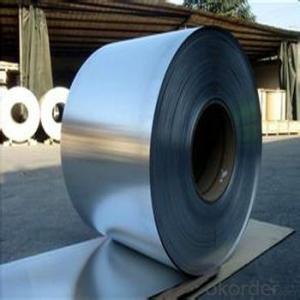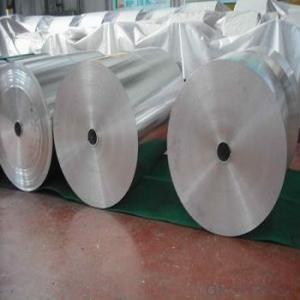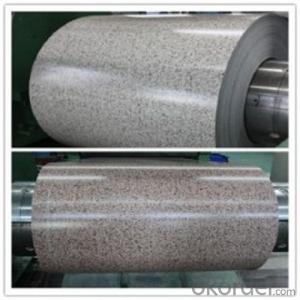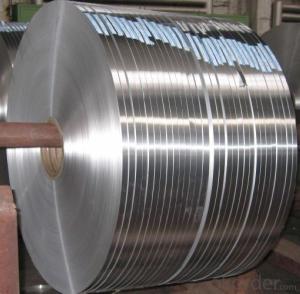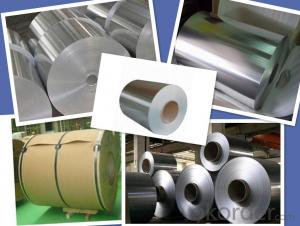Aluminum Jumbo Rolls and Mill Finished Coil
- Loading Port:
- Qingdao
- Payment Terms:
- TT or LC
- Min Order Qty:
- 1 m.t.
- Supply Capability:
- 1000 m.t./month
OKorder Service Pledge
OKorder Financial Service
You Might Also Like
1.Knowledge about Aluminum
Aluminium is oxidized by water at temperatures below 280°C to produce hydrogen, aluminium hydroxide and heat:2 Al + 6 H2O → 2 Al(OH)3 + 3 H2
This conversion is of interest for the production of hydrogen. Challenges include circumventing the formed oxide layer, which inhibits the reaction and the expenses associated with the storage of energy by regeneration of the Al metal.
Aluminium is theoretically 100% recyclable without any loss of its natural qualities. According to the International Resource Panel's Metal Stocks in Society report, the global per capita stock of aluminium in use in society (i.e. in cars, buildings, electronics etc.) is 80 kg (180 lb). Much of this is in more-developed countries (350–500 kg (770–1,100 lb) per capita) rather than less-developed countries (35 kg (77 lb) per capita). Knowing the per capita stocks and their approximate lifespans is important for planning recycling.
2.Specification and Application
ALUMINIUM COIL
ALLOY: AA1***
AA3***
AA5***
TEMPER: H14 H16 H18 H22 H24 H26 H32 O/F
THICKNESS:0.03MM-3.0MM
WIDTH: 30MM-1700MM
COATING: PE(POLYESTER),PVDF,EPOXY
STANDARD: GB/T 17748-1999
3.Why you choose us?
Our company promise the best quality, best service and best price.Welcome you to visit our factory!
4.Pictures
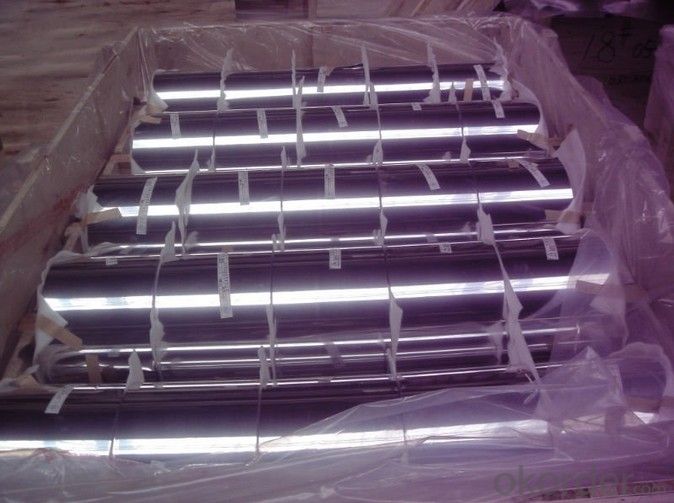
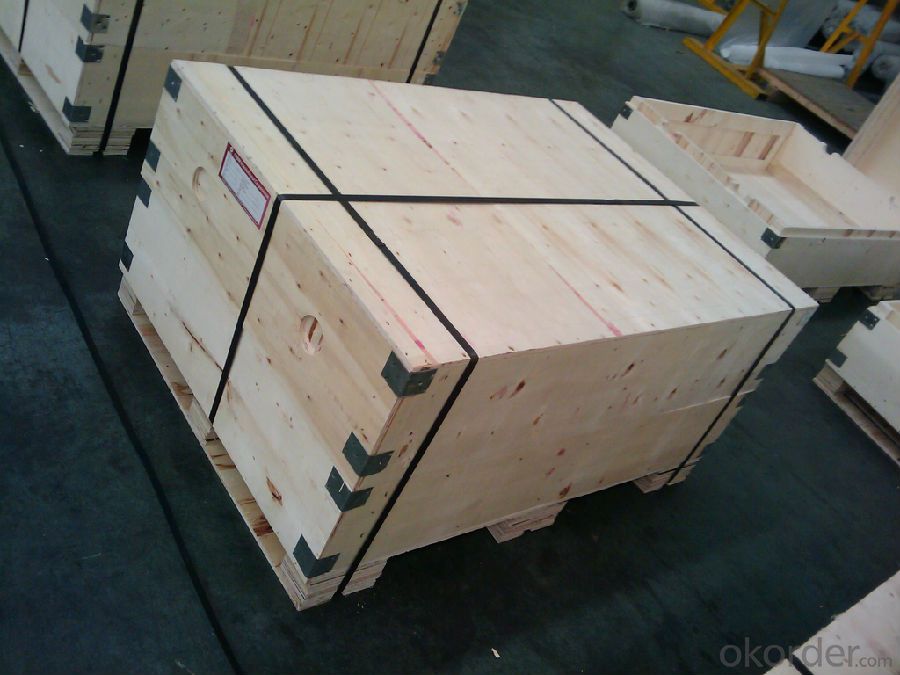
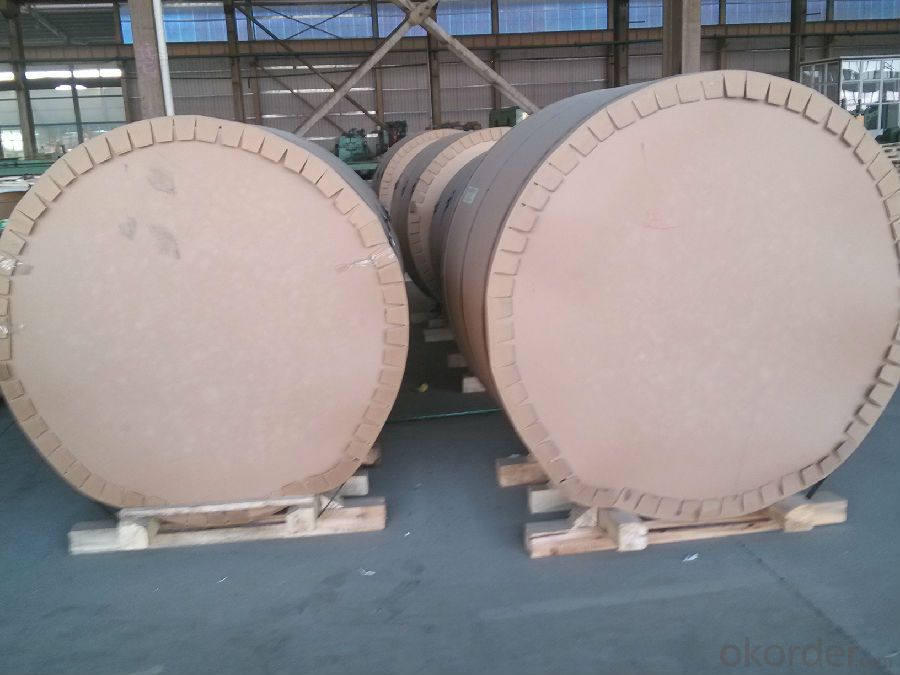
5.FAQ:
1)what is aluminum?
Aluminium (or aluminum; see spelling differences) is a chemical element in the boron group with symbol Al and atomic number 13. It is a silvery white, soft, nonmagnetic, ductile metal. Aluminium is the third most abundant element (after oxygen and silicon), and the most abundant metal in the Earth's crust. It makes up about 8% by weight of the Earth's solid surface.
Aluminium metal is so chemically reactive that native specimens are rare and limited to extreme reducing environments. Instead, it is found combined in over 270 different minerals.The chief ore of aluminium is bauxite.
2)What's kind of payment term we can supply?
CIF,CFR, FOB and other.
3)Can we supply samples?
Yes, we can!
4)What can you do if you have other quastions?
You can contact us freely at any time!
2)How about our payment term?
LC and TT and other.
3)Which country can we supply?
All around the world!
- Q:Can aluminum coils be used in water treatment plants?
- Yes, aluminum coils can be used in water treatment plants. Aluminum is a commonly used material in various water treatment processes, such as filtration, sedimentation, and coagulation. It is known for its corrosion resistance and durability, making it suitable for handling water and various chemicals commonly used in treatment plants.
- Q:What is the typical thickness of aluminum coils?
- The typical thickness of aluminum coils can vary depending on the specific application and industry. However, commonly used thicknesses range from 0.015 inches (0.38 mm) to 0.25 inches (6.35 mm).
- Q:Can aluminum coils be used in the manufacturing of cans?
- Yes, aluminum coils can be used in the manufacturing of cans. Aluminum coils are often used to produce the thin sheets of aluminum that are then formed into cans. The coils are typically processed through a series of steps, including rolling, annealing, and slitting, to create the desired thickness and width for can production. The aluminum sheets are then cut into appropriate sizes and shaped into the familiar cylindrical can shape. Aluminum is a popular choice for can manufacturing due to its lightweight, durable, and corrosion-resistant properties. It also provides a barrier to light, oxygen, and moisture, helping to preserve the quality and shelf life of the contents inside the cans. Overall, aluminum coils are an essential component in the manufacturing process of cans and play a significant role in the packaging industry.
- Q:I need to make aluminum powder. What machine should I use and what aluminum object should I use?
- The okorder
- Q:What is the maximum coil width available?
- The maximum available coil width is contingent upon various factors, including the manufacturing capabilities of the supplier or manufacturer in question. In broad terms, coil widths can span from a few millimeters to several meters. The utmost width is typically dictated by the machinery employed in coil production and the constraints imposed by the size of the raw materials being handled. It is advisable to engage in consultation with specific suppliers or manufacturers to ascertain the maximum coil width feasible for a given product or application.
- Q:How are aluminum coils protected against UV exposure during storage?
- During storage, aluminum coils are typically safeguarded against UV exposure through the application of a protective coating or the use of UV-resistant packaging materials. UV degradation poses a significant risk to the coils, leading to discoloration, surface damage, and reduced performance. Consequently, manufacturers and distributors take special precautions to shield the coils from harmful UV rays. One popular approach involves applying a protective coating on the coil surface. This coating acts as a barrier between the aluminum material and UV radiation, preventing direct exposure. Usually, the coating consists of a specialized paint or lacquer that contains UV inhibitors. These inhibitors either absorb or reflect UV rays, minimizing damage to the coils. Furthermore, this protective layer preserves the aesthetic appearance of the coils and extends their lifespan. Aside from coatings, UV-resistant packaging materials can also be used to store aluminum coils. These materials are specifically designed to block or absorb UV radiation, creating a shield around the coils. Polyethylene films are a common choice for UV-resistant packaging, as they provide excellent UV protection. By storing the coils in such packaging, they are effectively safeguarded against direct sunlight and other sources of UV radiation. It is important to note that UV protection measures become particularly crucial during long-term storage or transportation, as the coils may be exposed to UV rays for extended periods. By implementing these protective measures, manufacturers and distributors ensure that the aluminum coils maintain their quality and performance, even when stored in environments with high UV exposure.
- Q:Can aluminum coils be used in the production of window frames?
- Indeed, window frames can be produced by utilizing aluminum coils. Aluminum, as a lightweight and robust substance, finds frequent application within the construction sector owing to its resistance to corrosion and impressive strength. Aluminum coils can be effortlessly molded into numerous configurations, including those suitable for window frames, thereby rendering them an optimal selection for the fabrication of windows. Furthermore, aluminum qualifies as a sustainable material that can be effortlessly recycled, thus establishing it as an eco-friendly alternative for window frame manufacturing.
- Q:What are the different coil handling options available for aluminum coils?
- There are several coil handling options available for aluminum coils, depending on the specific requirements and preferences of the user. Some of the commonly used options include: 1. Coil Cradles: These are horizontal racks or frames on which the aluminum coils are placed. They provide support and stability to the coils during storage or transportation. Coil cradles are available in various sizes and designs to accommodate different coil dimensions. 2. Coil Cars: Coil cars are mobile platforms equipped with lifting mechanisms that allow for easy movement of aluminum coils. They are commonly used in manufacturing facilities where coils need to be transported between different processing stations. Coil cars can be manually operated or automated, depending on the level of automation desired. 3. Coil Turnstiles: Coil turnstiles are rotating devices that hold multiple coils vertically. They allow for easy access to individual coils without the need for heavy lifting or rearranging. Coil turnstiles are ideal for high-volume production environments where quick coil changeovers are required. 4. Coil Upenders: Coil upenders are specialized equipment used to rotate or flip aluminum coils to change their orientation. This is particularly useful when a coil needs to be loaded or unloaded from a vertical position, or when certain processes require a specific coil orientation. 5. Coil Lifters: Coil lifters are a type of lifting device specifically designed to handle aluminum coils. They typically feature adjustable arms or clamps that securely grip the coil, allowing for safe and efficient lifting. Coil lifters come in various configurations, including manual, semi-automatic, and fully automated models. 6. Coil Tippers: Coil tippers are used to tilt or incline aluminum coils for various purposes, such as facilitating coil feeding into processing machines or enabling easier coil inspection. They can be operated manually or powered by hydraulic or pneumatic systems. 7. Coil Stackers: Coil stackers are used to neatly stack and store aluminum coils vertically. They typically feature adjustable arms or forks that can be raised or lowered to accommodate different coil sizes. Coil stackers help optimize storage space and ensure easy access to coils when needed. These are just a few examples of the coil handling options available for aluminum coils. Each option offers its own advantages and may be suitable for different applications or industries. It is important to carefully consider the specific requirements and constraints before selecting the most appropriate coil handling solution.
- Q:Can aluminum coils be used for seamless gutters?
- Yes, aluminum coils can be used for seamless gutters. Aluminum is a popular choice for seamless gutter installations due to its durability, lightweight nature, and resistance to corrosion. The coils can be easily shaped and formed to create a seamless gutter system that effectively directs rainwater away from the building.
- Q:How do aluminum coils contribute to sustainable construction?
- Aluminum coils play a significant role in promoting sustainable construction practices due to their numerous environmental benefits. Firstly, aluminum is a highly recyclable material, with nearly 75% of all aluminum ever produced still in use today. This means that aluminum coils can be easily recycled at the end of their lifespan, reducing the demand for new raw materials and minimizing waste sent to landfills. Furthermore, the production process of aluminum coils requires significantly less energy compared to other materials such as steel. Aluminum coils have a low carbon footprint, as the energy consumed during their production is considerably lower, resulting in fewer greenhouse gas emissions. The reduced energy consumption also contributes to lower operating costs for construction projects, making it an economically viable choice. Additionally, aluminum coils are lightweight yet durable, making them an ideal choice for sustainable construction. Their lightweight nature reduces the need for heavy support structures, resulting in reduced material consumption and transportation costs. Moreover, the durability of aluminum coils ensures a longer lifespan, reducing the need for frequent replacement and minimizing waste generation. Aluminum coils also possess excellent corrosion resistance, which is crucial in sustainable construction. This resistance to corrosion means that structures made from aluminum coils require less maintenance and repair over time. Consequently, fewer resources are needed to maintain the integrity of the building, reducing the overall environmental impact. In conclusion, aluminum coils contribute to sustainable construction by being highly recyclable, energy-efficient, lightweight, durable, and corrosion-resistant. By choosing aluminum coils, construction projects can significantly reduce their environmental footprint, conserve resources, and promote a more sustainable built environment.
1. Manufacturer Overview |
|
|---|---|
| Location | |
| Year Established | |
| Annual Output Value | |
| Main Markets | |
| Company Certifications | |
2. Manufacturer Certificates |
|
|---|---|
| a) Certification Name | |
| Range | |
| Reference | |
| Validity Period | |
3. Manufacturer Capability |
|
|---|---|
| a)Trade Capacity | |
| Nearest Port | |
| Export Percentage | |
| No.of Employees in Trade Department | |
| Language Spoken: | |
| b)Factory Information | |
| Factory Size: | |
| No. of Production Lines | |
| Contract Manufacturing | |
| Product Price Range | |
Send your message to us
Aluminum Jumbo Rolls and Mill Finished Coil
- Loading Port:
- Qingdao
- Payment Terms:
- TT or LC
- Min Order Qty:
- 1 m.t.
- Supply Capability:
- 1000 m.t./month
OKorder Service Pledge
OKorder Financial Service
Similar products
New products
Hot products
Hot Searches
Related keywords

